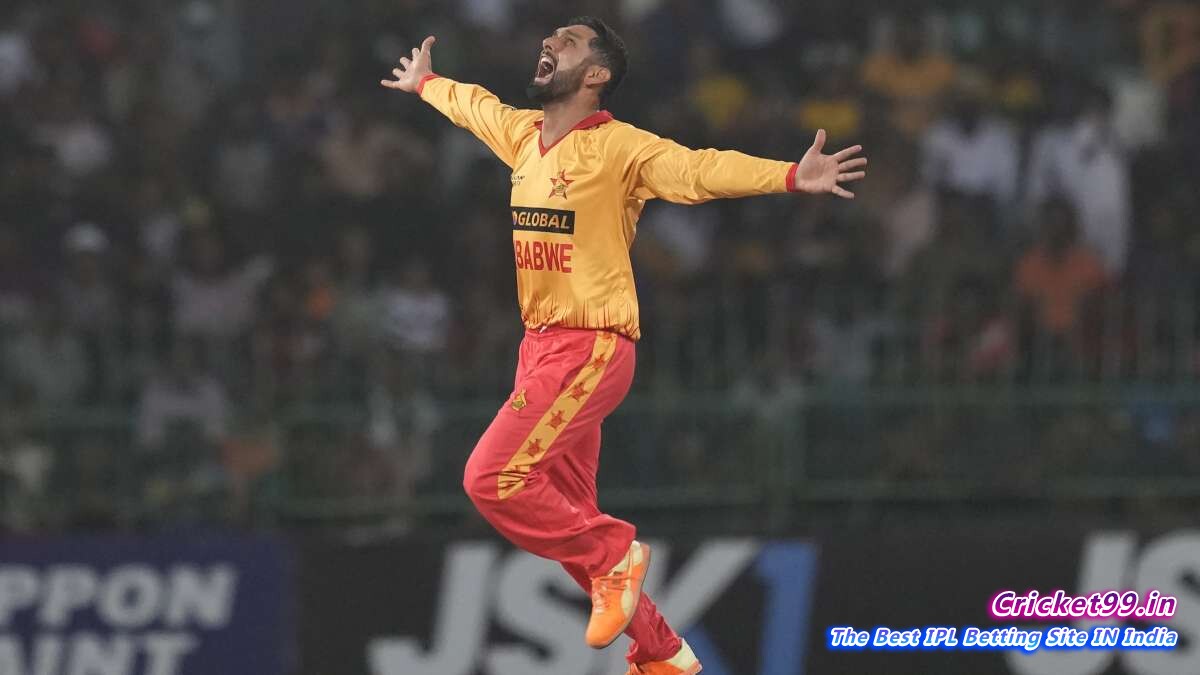
When it comes to the world of cricket, the term “consistency” is often hailed as the hallmark of great players. However, in the high-octane environment of Twenty20 (T20) cricket, maintaining consistency is a Herculean task due to the inherent risks associated with the format’s aggressive batting demands. Yet, against all odds, Zimbabwe’s T20I captain Sikandar Raza has broken through the barriers of this high-stakes game, redefining the very essence of reliability in performance.
In a spectacular demonstration of skill and endurance, Raza has become the sole cricketer in men’s T20Is to have achieved five consecutive fifty-plus scores. His bat spoke louder than ever in the first T20I against Sri Lanka, where he surpassed cricketing luminaries such as Brendon McCullum, Chris Gayle, and Reeza Hendricks, who have all notched up four sequential half-centuries in the shortest format of the game. However, distinction doesn’t stop at his batting prowess. Raza, an all-rounder of exceptional caliber, set a stellar benchmark by amassing at least two wickets in addition to a fifty-plus score in each of his last five T20Is—a feat that remains a coveted dream for many in the sport.
Raza’s recent T20I performances have been nothing short of remarkable. Yet, as fate would have it, despite his stellar individual success, Zimbabwe’s journey hasn’t materialized into a string of victories. The captain’s top three outings came during the T20 World Cup Africa Qualifier, but still, Zimbabwe did not secure a spot in the global tournament. His latest performance against Sri Lanka was another testament to his tenacity, where he single-handedly lifted his team to a respectable total of 143 runs and later dismantled the opposition with an enviable bowling figure of 3 wickets for 13 runs. Alas, even this was not enough to clinch the win, with Zimbabwe faltering on the very last ball.
Reflecting on the match and the state of Zimbabwean cricket, Raza candidly expressed his discontent. He highlighted the recurrent narrative of Zimbabwe falling short, particularly in critical moments of the game. Yet, amidst this reflection of persisting challenges, Raza’s faith in his teammates remained unshaken. He exhibited commendable leadership, affirming his belief that the same squad under his guidance would turn the tides for Zimbabwean cricket. Sikandar Raza emphasized the weight of victory over personal accomplishments, stating that true enjoyment can only sprout from their collective success and the transformation of their fortune as a national team.
With the second T20I scheduled to unfold on January 16th in Colombo, Raza is poised for another quest to shepherd his team toward triumph with his exceptional all-around gameplay. The pertinent question lingers: will his teammates rise to the occasion, amplifying their captain’s heroics, and cross the threshold into the winner’s circle? The cricketing world will watch with bated breath as Zimbabwe’s canvas of fate awaits its next few brushstrokes.










